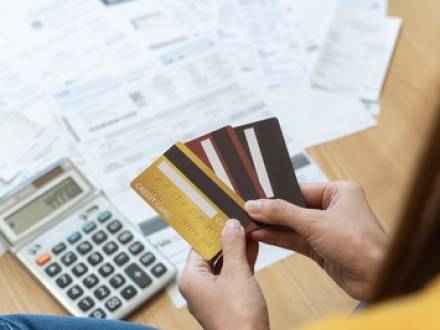When Credit Card Debt May Not Be Dischargeable in Chapter 7
 If you have decided to file for Chapter 7 bankruptcy, you may expect a clean slate when all is said and done, especially when it comes to credit card debt. Although it is true that most unsecured debts will be wiped out by Chapter 7 bankruptcy, there are certain unique situations in which credit card debt can survive bankruptcy. Courts typically scrutinize recent spending, cash advances, and fraud-related purchases during a Chapter 7 bankruptcy filing.
If you have decided to file for Chapter 7 bankruptcy, you may expect a clean slate when all is said and done, especially when it comes to credit card debt. Although it is true that most unsecured debts will be wiped out by Chapter 7 bankruptcy, there are certain unique situations in which credit card debt can survive bankruptcy. Courts typically scrutinize recent spending, cash advances, and fraud-related purchases during a Chapter 7 bankruptcy filing.
It is important to know what types of credit card debt might not be removed under Chapter 7, so there are no unpleasant surprises on your way to a fresh financial start. Having an experienced and knowledgeable Dallas, TX Chapter 7 bankruptcy attorney by your side throughout the process can help ensure that your bankruptcy will wipe out all your unsecured debt.
Overview of Texas Chapter 7 Bankruptcy
Chapter 7 bankruptcy is often known as "liquidation bankruptcy." Most unsecured debts, including credit card debt, medical debt, and personal loans, can be wiped out through Chapter 7. You must meet certain requirements, pass the means test, and complete mandatory credit counseling. Texas is generally considered a debtor-friendly state, thanks to its generous exemptions, which allow you to protect a significant portion of your assets from liquidation.
Your household’s average monthly income over the past six months will be compared to the Texas state median income for your household size. If your income is below the median income, you automatically qualify for Chapter 7. If your income is above the state median income, your disposable income after allowable expenses will be considered to determine whether you have enough income to repay your debts under a Chapter 13 repayment plan.
Texas state exemptions are virtually always chosen over federal exemptions because they are much more generous. The state offers an unlimited homestead exemption that protects all equity in your primary residence, up to 10 acres for urban areas, and up to 100 acres for rural property. The personal property exemption is $50,000 for a single adult, or $100,000 for a family, and includes home furnishings, family heirlooms, clothing, jewelry, two firearms, animals and pets, and the full value of one vehicle. Retirement accounts, wages, and benefits are generally exempt.
Situations Where Credit Card Debt May Not Be Discharged
The following situations may prevent credit card debt from being discharged:
- You made recent purchases of luxury goods or services within 90 days of filing.
- You went on a "spending spree" with your credit cards shortly before filing for bankruptcy.
- You took out more than $1,100 in cash advances on your credit card within 70 days of filing.
- You used your credit card or cards with no intent or ability to repay the debt.
- You made material misrepresentations on your credit card application.
- You were using your credit cards at the same time you were consulting a bankruptcy attorney.
What to Do if a Large Portion of Your Credit Card Debt is Non-dischargeable
If there is a significant amount of your credit card debt that will not be discharged through Chapter 7, your attorney may recommend a Chapter 13 repayment plan rather than Chapter 7. You could also try negotiating with your creditors outside of bankruptcy. You may be able to use your exemptions, along with legal defenses, to reduce your liability. Creditors are more likely to be aggressive in challenging high-balance cases in Texas courts.
Contact a Parker County, TX Bankruptcy Lawyer
Bankruptcy is meant to provide you with a fresh financial start, but you need to determine whether all your credit card debt will be discharged in Chapter 7 bankruptcy. A Dallas, TX Chapter 7 bankruptcy attorney from Acker Warren P.C. can guide you through the process while answering your questions regarding your future after Chapter 7. You will always speak directly to an attorney when you call, and we offer an extremely fast turnaround. Call 817-752-9033 to schedule your free consultation.









